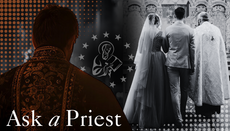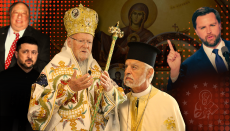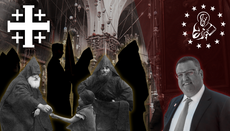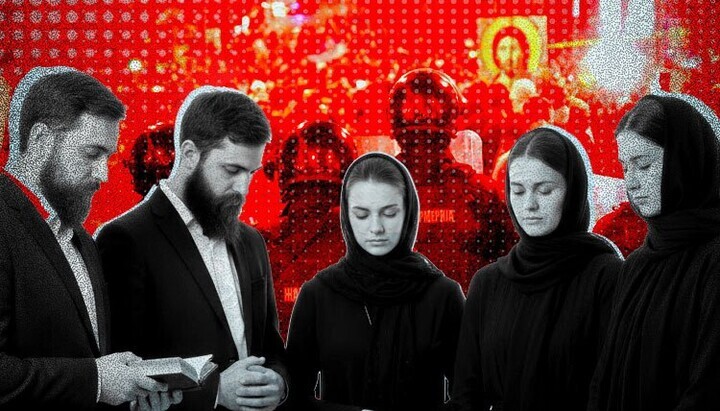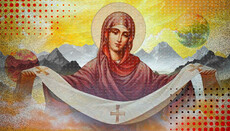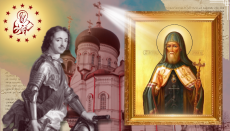Uniates and OCU Turn on Zelensky
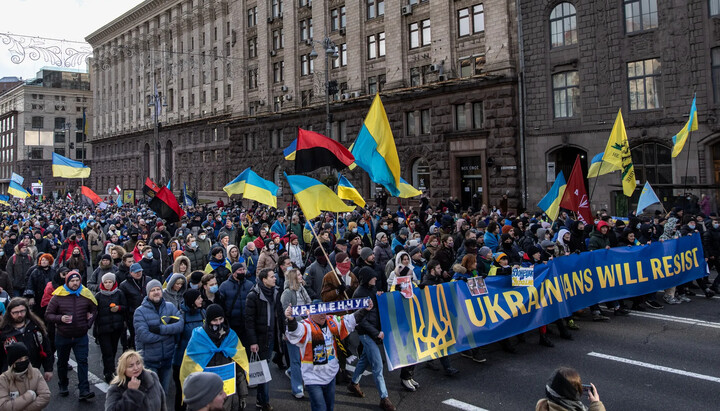
Amid protests and Western criticism over his power grab, Ukraine’s patriotic churches turn on the president
KYIV — After the lightning-fast adoption of a law undermining the National Anti-Corruption Bureau of Ukraine (NABU) and the Specialized Anti-Corruption Prosecutor’s Office (SAP)—both institutions backed by the West—President Volodymyr Zelensky has found himself facing serious and unexpected challenges.
Mass protests have erupted across the country, and a wave of fierce criticism from the European Union has been unleashed against him. Although Zelensky appeared to backtrack, promising to introduce a new bill to restore NABU and SAP’s powers, the anti-Zelensky momentum has not subsided.
Paradoxically, even the Orthodox Church of Ukraine (OCU) and the Ukrainian Greek Catholic Church (UGCC) have joined in the protests against the government.
One of the more controversial figures in the OCU, church raider Roman Hryshchuk, personally took part in the protest rallies and called on his numerous followers to do the same.
On the UGCC side, Metropolitan Sviatoslav Shevchuk publicly spoke out. He likened the current protests to the 2004 and 2014 Maidans, stating that the law’s passage had “undermined the people’s trust in the authorities, and that of international partners in Ukraine.” He also thanked those who are demonstrating against Zelensky. While OCU leader Serhii Dumenko (Epiphanius) has so far remained silent, there is little doubt that he is "waiting on the starting block."
Several key points deserve attention:
- Zelensky’s excuse for the power grab was the alleged “Russian influence” over NABU and SAP. He used a familiar tactic: accusing critics and opponents of working for the Kremlin. This narrative has long accompanied the persecution of the canonical Ukrainian Orthodox Church (UOC), opposition figures, and dissenting journalists—and it had usually worked. But this time, it failed.
- Both Shevchuk and Hryshchuk now justify their support for a new “Maidan” as a fight against corruption. Yet corruption scandals have been rampant throughout Zelensky’s presidency—and the churches remained silent. They only spoke up after the attack on NABU and SAP. This suggests their motives are not rooted in anti-corruption, but in deeper political currents that are gradually sidelining Zelensky.
- The government has shown constant favoritism toward both the OCU and UGCC. Zelensky recently lobbied Pope Francis to canonize Metropolitan Andrey Sheptytsky, who collaborated with both Hitler and Stalin. As for the OCU, it has essentially become a state religion. But the moment the political winds shifted, instead of gratitude, the leaders of these "patriotic" churches—sensing Zelensky’s weakness—began signaling his removal.
These structures appear to operate on a predatory instinct: to tear down the leader at the first sign of vulnerability. Zelensky is far from the first victim. One might recall how Epiphanius betrayed his patron Petro Poroshenko after the latter lost the presidential election, or how the OCU immediately turned on the head of the Kyiv-Pechersk Lavra reserve, Ostapenko, following his dismissal.
As the 18th-century French statesman Charles Maurice de Talleyrand-Périgord famously said, “To betray in time is not betrayal, but foresight.”
Judging by recent events, this has become something of a sacred motto within both the OCU and UGCC.
